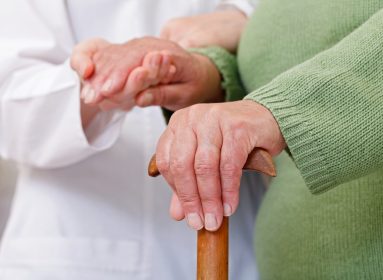
There are a lot of different factors that can contribute to respiratory health, and your ancestry is just one of them. But it’s important to be aware of these differences, so that you can take steps to protect your respiratory health and stay healthy.
Your Ancestry and Respiratory Health
Whether you’re studying for your respiratory care masters degree or are working to understand your own wellness, it’s important to understand the potential connection between genetics and respiratory health. If you are of African descent, you may be more likely to develop asthma. This is because asthma is more common in African Americans than in white Americans. And if you are of East Asian descent, you may be more likely to develop COPD. This is because COPD is more common in East Asians than in white Americans.
Studies have shown that there are several genetic mutations that are more common in certain ethnic groups that may predispose them to respiratory diseases. One example is the sickle cell gene, which is more common in people of African descent. This gene may make them more susceptible to respiratory infections, such as pneumonia.
Another explanation for these disparities is that the environment in which people of different ancestries grow up may play a role in their respiratory health. For example, people of African descent may be more likely to grow up in poverty-ridden areas that are rife with air pollution, which may increase their risk for respiratory diseases.
It is important to note that these are only a few of the possible explanations for the disparities in respiratory health between different ethnic groups. More research is needed to determine the root causes of these differences. In the meantime, it is important for everyone to be aware of the potential risks and take steps to protect their respiratory health, regardless of their ethnicity.
Whatever the explanation, it’s clear that your ancestry may play a role in your respiratory health. If you have a history of respiratory problems in your family, it’s important to be aware of this and to take steps to protect your respiratory health. This may include avoiding air pollution, exercising regularly, and getting vaccinated against respiratory infections.
Caring for Your Respiratory Health
There are a number of things you can do to protect your respiratory health, no matter what your ancestry DNA health results. Some of the most important steps are to avoid smoking, keep your airways clear, and get regular checkups.
If you have asthma, make sure to follow your doctor’s instructions carefully. This includes taking your medications as prescribed and avoiding triggers like cigarette smoke. If you have COPD, it’s important to get regular checkups and to work closely with your doctor to manage your condition. There are a number of treatments available for COPD, and with the help of your doctor, you can find the treatment that works best for you.
One simple way to support your respiratory health is to drink plenty of fluids. This helps keep your airways moist and makes it easier to breathe. You should also avoid smoking and exposure to secondhand smoke, which can damage your lungs.
If you have a cold or the flu, you should rest and drink plenty of fluids. You can also take over-the-counter medications to help relieve your symptoms. If you have a more serious respiratory illness, you may need to see a doctor.
You can also support your respiratory health by exercising regularly. Exercise helps keep your lungs healthy and strong. It also helps to keep your body healthy overall, which can help your immune system fight off respiratory infections.
Another way to support your respiratory health is to eat a healthy diet. Eating healthy foods helps keep your body strong and healthy, which can help protect your lungs. Some foods that are good for your respiratory health include fruits, vegetables, and whole grains. You should also avoid foods that are high in fat and sugar.
No matter what your ancestry, it’s important to take steps to protect your respiratory health. By following these simple tips, you can keep your lungs healthy and breathe easy.







